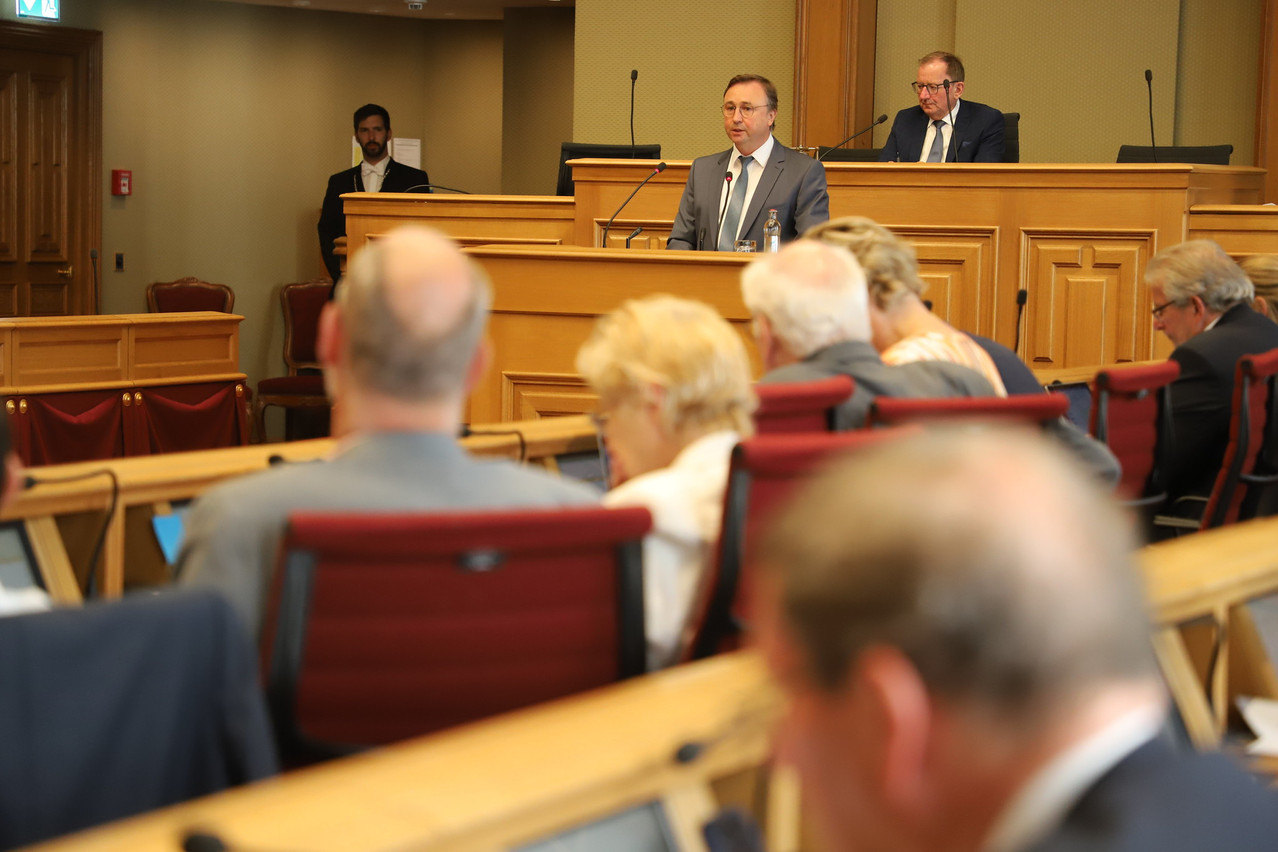The policy debate on taxation held in the chamber of deputies on Thursday 14 July gave rise to two exercises. The parliamentary majority was able to present the few tax measures that, in the absence of a major tax reform, will be applied by the end of the legislature. The debate also proved to be an opportunity for the parties to launch their electoral campaigns by presenting their proposals for the post-2023 period.
The majority therefore agreed on a few fiscal measures to be planned before the end of the legislature. Their ambitions were modest, given the slender budgetary room for manoeuvre left by public finances that have been badly affected by the covid crisis and the war in Ukraine.
In the form of a motion, the three coalition parties (DP, déi Gréng, LSAP) have “encouraged the government to reduce the tax burden on individuals in a targeted manner” with the aim of having a “fairer tax system.” And, in this vein, to "evaluate the opportunity to strengthen [...] the purchasing power of single-parent families". The majority group also recalled the need to "closely monitor the evolution of energy prices" to evaluate "the additional financial burden borne by households".
A tight 2023 budget
On the housing side, the majority agreed on the idea of making "even less advantageous [...] the accelerated depreciation regime for buildings used for rental housing". They also proposed to adapting the VAT rate on certain goods and services "to support the energy transition and the circular economy".
But these proposals are systematically accompanied by the words "within the limits of sufficient budgetary leeway", as the 2023 budget sets certain limits on expenditure.
Subsequently, the majority parties also seized the opportunity, with a view to the 2023 legislative elections, to distinguish themselves from each other by recalling their specificities.
Déi Gréng for a green tax system
The DP continues to say it is "against tax increases", but also against "the introduction of a tax on inheritance or on the wealth of private households". At the same time, it reiterates its commitment to individualisation in tax matters, which should have been introduced during this legislature. It also wishes to encourage investments in areas such as sustainability and digitalisation. It is also noted that private investment in start-ups could also eventually lead to a tax advantage.
Climate neutrality is of course at the heart of déi Gréng's programme with a reduction of VAT to 5% on the sale and rental of bicycles and 0% for the sale and installation of solar panels. MP (Déi Gréng) also proposed tax benefits for sustainable financial investments and tax depreciation for companies investing in climate protection.
LSAP targets inequalities
But the Déi Gréng party also called for a targeted strengthening of low and middle incomes, a rebalancing between capital and labour taxation, and a new income tax bracket for the highest incomes. There is also a need to promote affordable housing.
Reducing inequality remains the LSAP's main concern. The socialist party is in favour of increasing the progressiveness of income tax, with "more tax for the highest incomes", according to MP (LSAP), and at the same time less for the lowest incomes, including tax exemption up to the minimum wage. To fight against inequalities, the LSAP proposes a new tax credit per child in a household, or the increase of the single parent tax credit. Kersch also reiterated to an idea expressed in the past--the “covid tax”--by calling for higher taxes on companies that have benefited from the crisis.
CSV wants the middle class
As an opposition party, the CSV is unsurprisingly in favour of a tax reform as soon as possible for the benefit of the middle class and the most vulnerable people. Among the ten or so bills tabled, the indexation of tax scales is a key measure. The aim is to raise tax scales in order to protect the middle class. The conservative party also supports the outright rejection of the introduction of a wealth tax or a direct inheritance tax.
Businesses have not been forgotten with, in particular, a proposal by MP (CSV) concerning an income tax to boost investment in sustainable and digital entrepreneurship. The idea is to accompany capital investment with tax incentives while restricting the scope of the proposed law to SMEs.
Pirate party finds tax system “archaic”
Déi Lénk is calling for urgent tax justice. Measures include a sharp increase in the progressiveness of the income tax (raising the maximum tax rate to 50% with new brackets to be added) and equal taxation of income from work and income from capital, including the abolition of the 50% exemption on dividends. The party also wants a reform of the property tax, with a progressive increase according to the value of real estate.
For the Pirate Party, the minimum social wage should be made tax-free, to ensure that the minimum wage after taxation remains above the poverty line for a single-parent family. The Pirates also call for a system that taxes all incomes equally, and a shift from a system that is considered "archaic and complex" to one that is "more readable, understandable and usable".
The ADR has made no secret of its aversion to taxes, saying that work in the country is overtaxed, especially for the self-employed. The most right-wing party in the chamber is also calling for a tax exemption on the minimum wage, as well as the abolition of all inheritance taxes.
This story was first published in French on . It has been translated and edited for Delano.
